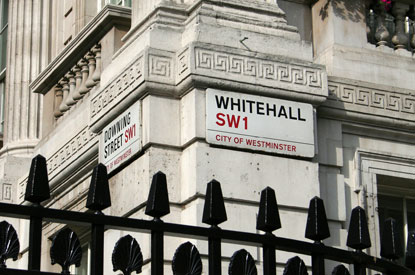Plans to reform the civil service risk undermining the impartiality of advice offered to ministers and could lead to ‘cronyism’, a House of Lords committee warned today.
 Examining the government’s Civil Service Reform Plan, the constitution select committee said giving ministers a greater say in the appointment of staff would also threaten the principle of appointments based on merit.
Examining the government’s Civil Service Reform Plan, the constitution select committee said giving ministers a greater say in the appointment of staff would also threaten the principle of appointments based on merit.The plan, published in June, set out proposals for more rigorous performance management of civil servants. It also proposed increasing the role of secretaries of state in departmental appointments, including permanent secretaries. This would reflect ministers’ accountability to Parliament and increase the chances of a successful working relationship, the plan stated. Ministers should also be able to ask for specific individuals to be appointed to particular, time-limited, roles within Whitehall.
Cabinet Office Minister Francis Maude and head of the civil service Sir Bob Kerslake have said this will help ensure policy development and implementation are seamlessly linked.
However, constitution select committee chair Baroness Jay today said impartiality was ‘one of the strengths of the UK civil service’. It ensured governments of different political complexions were served with equal commitment by staff.
‘The government must ensure that their reforms do not undermine those strengths or threaten the impartiality of the civil service. Permanent secretaries must continue to be appointed on merit and through fair and open competition, regardless of any changes to the appointment process,’ she said.
‘The committee is concerned that the plan to allow ministers to make direct, fixed-term civil service appointments would limit the ability of civil servants to speak candidly to ministers. Unless safeguards are put in place it risks being used to increase the political element of the civil service through the back door, and may lead to cronyism.’
The report also called for parliamentary select committees to be given greater access to civil service advice to ministers. Committees should be given powers to call former civil servants to give evidence on projects on which they used to work.
Peers also urged government to ensure it became ‘normal practice’ for single senior civil servants to oversee major projects from start to finish. This would improve the accountability of large infrastructure and IT schemes.
Responding to the report, a Cabinet Office spokesman said ministers would carefully consider the recommendations.
‘In June we published a Civil Service Reform Plan, developed by ministers and permanent secretaries, that sets out actions to tackle long-standing weaknesses, build on existing strengths and address frustrations expressed by civil servants themselves,’ he added.
‘The civil service has begun to implement the actions from the plan but there is still a long way to go to achieve lasting change. If the reforms are implemented, the civil service of the future will be smaller, flatter, faster, more unified, more digital, more accountable for delivery, more capable, better managed, and – ultimately – more fun to work for.’




















